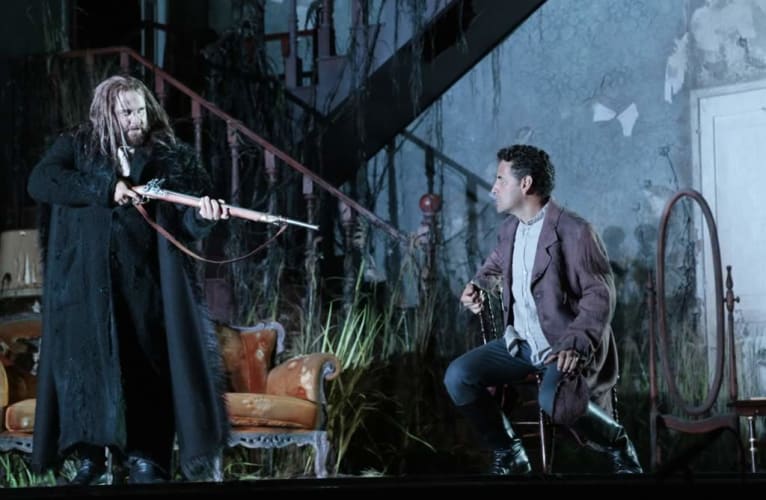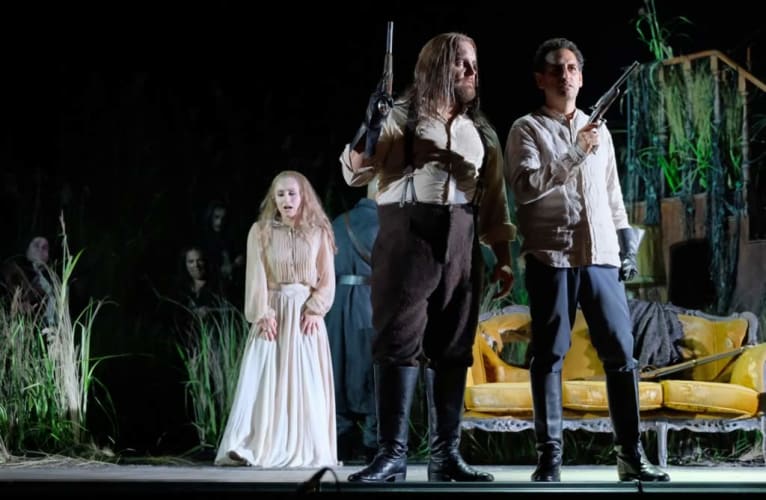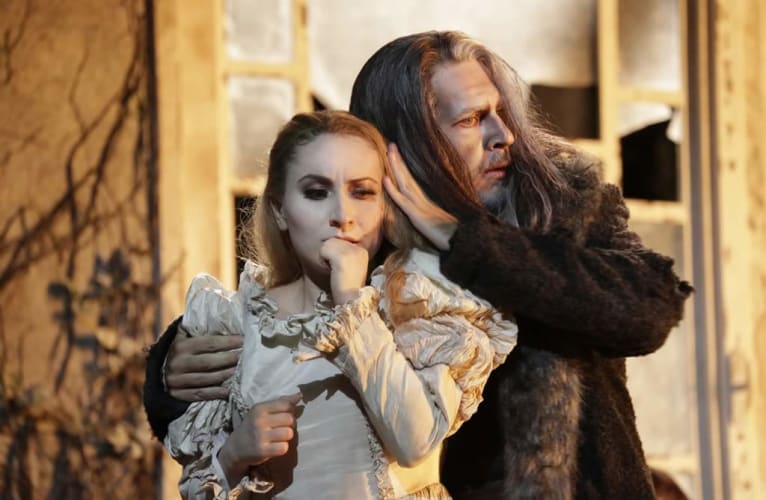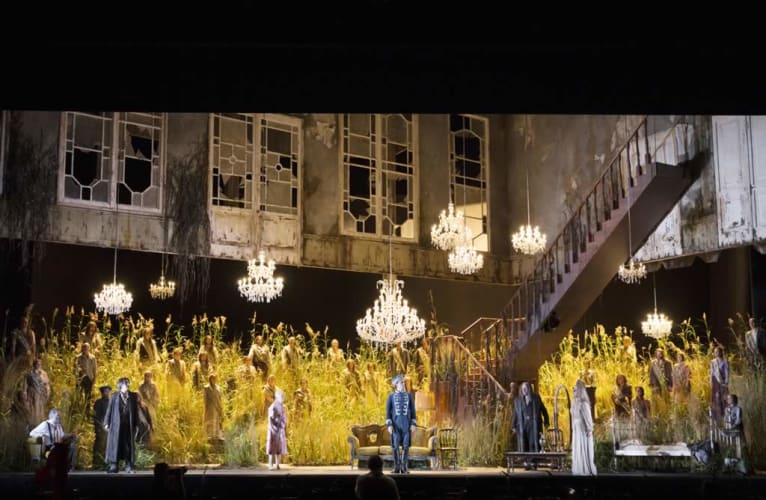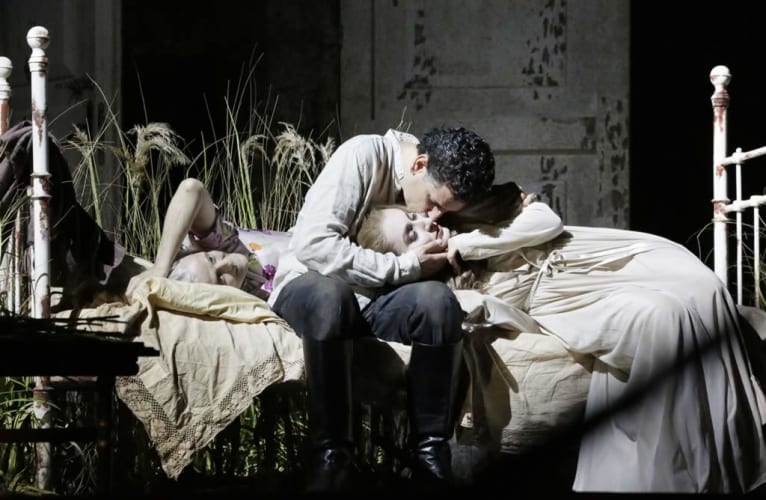Rossini was onto something when he found a French translation of Sir Walter Scott’s poem The Lady of the Lake in 1819. His was the first opera based on works of the Scottish writer; by 1840, there were another 24 in Italian alone.
Most are now largely forgotten, and his La Donna del Lago was largely ignored until its re-emergence at the Met in 2015 and here at the 2016 Rossini festival in Pesaro. The piece is unlikely to set the stage on fire, but thanks to an insightful interpretation by director Damiano Michieletto and an all-star cast, this production makes as good a case for its virtues as can be imagined.
Giacomo (King James V), disguised as a hunter, meets the beautiful Elena and falls in love with her after she offers him shelter. Her father Douglas, Rodrigo to whom she is unhappily married, and her lover Malcolm are all rebels fighting the king, but after they are defeated and Rodrigo is killed, Elena calls in a favour from the king who pardons the survivors. It's a bit of a cushy ending, but Michieletto gives it a poignant spin all his own.
The production opens, not on the Romantic landscape of the Scottish Highlands in the 16th century as Rossini envisaged, but in a once luxurious, now decrepit mansion, inhabited by the elderly Elena and Malcolm, their silent marriage now in tatters like the furniture, a portrait of the king serving as the wife’s sad reminder of what might have been.
As she contemplates the past, the hunters who first accompanied Giacomo reappear as a ghostly presence, now carrying wall lamps in place of burning torches. The story is seen in retrospect, the staging well suited to the rather melancholy feel of much of the score, despite its typical Rossini flourishes.
Salome Jicia gives a fine performance in the title role, infusing her tuneful lines with real warmth. Writers have expressed regret that the composer wrote the part of Malcolm for a female singer, but Varduhi Abrahamyan is vigorous enough to prove them wrong, her rich mezzo complementing a forceful presence.
Juan Diego Florez as Giacomo, a role he sang in a less successful production at the Met the year before, is crystal clear, as always, whereas Michael Spyres—described as a baritenor—announces Rodrigo’s presence immediately with an aria of remarkable range. A highlight of the piece is their vocal duel, both trading off high notes like pistol shots.
Designer Paolo Fantin makes full use of the wide, high stage of the Adriatic Arena, formerly a sports venue, and the sound engineering compensates well for the high prominence of the orchestra.

